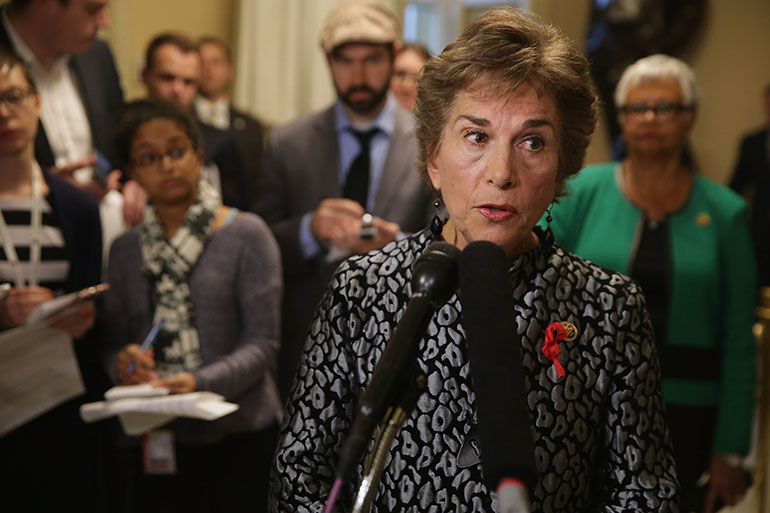Only days after Judy Hanttula came home from the hospital after surgery last November, her doctor’s office called with bad news: Records showed that instead of traditional Medicare, she had a private Medicare Advantage plan, and her doctor and hospital were not in its network.
Neither the plan nor Medicare now would cover her medical costs. She owed $16,622.
“I was panicking,” said Hanttula, who lived in Carlsbad, N.M., at the time. After more than five hours making phone calls, she learned that because she’d had individual coverage through Blue Cross Blue Shield when she became eligible for Medicare, the company automatically signed her up for its own Medicare Advantage plan after notifying her in a letter. Hanttula said she ignored all mail from insurers because she had chosen traditional Medicare.
“I felt like I had insured myself properly with Medicare,” she said. “So I quit paying attention to the mail.”
With Medicare’s specific approval, a health insurance company can enroll a member of its marketplace or other commercial plan into its Medicare Advantage coverage when that individual becomes eligible for Medicare. Called “seamless conversion,” the process requires the insurer to send a letter explaining the new coverage, which takes effect unless the member opts out within 60 days.
Medicare officials refused recently to name the companies that have sought or received such approval or even to say how long the Centers for Medicare & Medicaid Services has allowed the practice. Numerous insurers, including Cigna, Anthem and other Blue Cross Blue Shield subsidiaries, also declined to discuss whether they are automatically enrolling beneficiaries as they turn 65.
But others say they’re moving ahead.
Aetna will begin the process soon for its marketplace members in 17 Florida counties. The effort will kick off with individuals who qualify for Medicare in November, spokesman Matthew Clyburn said. They’ll receive 90 days advance notice instead of the required 60 and a postcard they can mail back, he said, and the company will follow up by phone to make sure they understand the change.
In November, UnitedHealthcare will start to automatically enroll members of its Medicaid plans in Tennessee and Arizona into its Medicare Advantage plans, a spokeswoman said.
And Humana, the nation’s second largest Medicare Advantage provider, has asked for federal permission to also do auto-enrollment. The process “will benefit people who want to stay with the same insurance company,” said Mark Mathis, director of Humana’s corporate communications. “It would simplify administration, eliminating a step in the process, and help maintain continuity with the same company.”
Medicare officials are developing a procedure for reviewing seamless conversion requests as well as a system to monitor implementation, spokesman Raymond Thorn said. A company given approval must automatically enroll all Medicare-eligible beneficiaries. But because federal law prohibits marketplace insurers from dropping a member who qualifies for Medicare, both marketplace and Medicare Advantage coverage continue until the person cancels the marketplace plan, Thorn explained.
Sally Thomphsen, who lives outside Chicago and had an individual health policy from Blue Cross Blue Shield last year, was more than surprised when she received her member card for a Medicare Advantage plan shortly before turning 65. Printed on the card was the name of her new primary care physician, someone she didn’t know.
“I almost hit the ceiling,” said Thomphsen, who had already enrolled in traditional Medicare.
She demanded that Blue Cross cancel her enrollment and reported the situation to Erin Weir, health care access manager at the local advocacy group AgeOptions. Weir heard a similar story from another local woman, who’d received a letter from her insurer saying a Medicare Advantage plan was “selected for you because it is similar to your current plan. Unless you contact us, you will be automatically enrolled.”
After learning about the problem both from constituents and health care advocates, Rep. Jan Schakowsky (D-Ill.) wants stronger consumer protections. “I am exploring the option of requiring an ‘opt-in’ so that Medicare beneficiaries are adequately informed and able to make the choices that work best for them,” said Schakowsky, whose district includes the Chicago area.
The Lovelace Medicare Advantage plan in which Hanttula found herself is run by Health Care Service Corp., which administers Blue Cross Blue Shield plans covering 15 million beneficiaries in Illinois, Montana, New Mexico, Oklahoma and Texas. A Health Care Service spokeswoman said it “offers seamless conversion enrollment on a limited basis.” She would not provide details.
Hanttula finally solved her problem with help from a Medicare counselor at New Mexico’s Aging and Disability Resource Center, who contacted David Lipschutz, a senior attorney at the Center for Medicare Advocacy in Washington. He advised the counselor to tell Medicare officials that the retiree was enrolled in Medicare Advantage without her knowledge even though enrollment must be voluntary.
Eventually, officials disenrolled Hanttula from her unwanted plan, restored her traditional Medicare coverage and agreed to cover her medical bills.
Lipschutz said giving beneficiaries the chance to opt out doesn’t adequately safeguard consumers. An insurer’s notification letter can easily be mistaken or overlooked in the deluge of marketing materials seniors receive.
“The right to opt out doesn’t exist if they didn’t get the notice or if they did get the notice but didn’t understand it,” he said.
KHN’s coverage of aging and long term care issues is supported in part by a grant from The SCAN Foundation.








